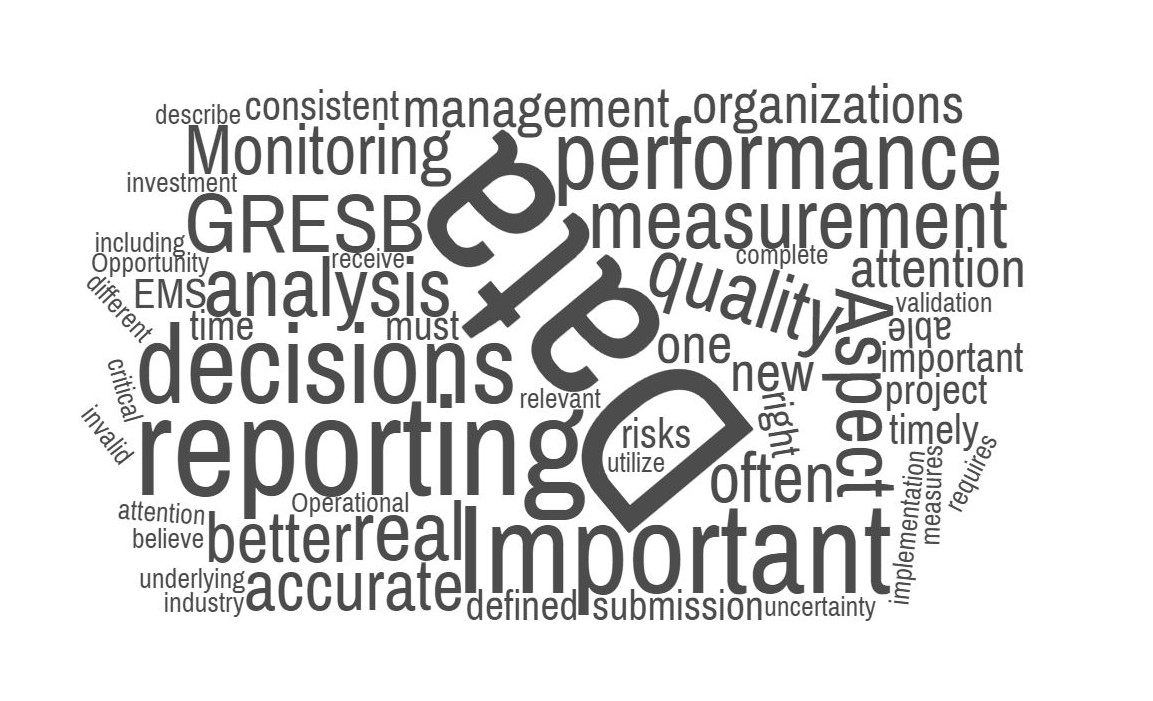 It’s a new year and a clean slate. Imagine this is the year you’ve resolved you WILL get a handle on the performance of your assets, your department, your company. You plan to request and review your departmental reports on a consistent timeframe that will help you analyze and make the right decisions in a timely manner. There’s just one problem – the numbers don’t look right. The more questions you ask and more answers you receive, the more uncertainty you have in the reports. If the underlying data isn’t accurate, the summary and analysis are not worthwhile either.
It’s a new year and a clean slate. Imagine this is the year you’ve resolved you WILL get a handle on the performance of your assets, your department, your company. You plan to request and review your departmental reports on a consistent timeframe that will help you analyze and make the right decisions in a timely manner. There’s just one problem – the numbers don’t look right. The more questions you ask and more answers you receive, the more uncertainty you have in the reports. If the underlying data isn’t accurate, the summary and analysis are not worthwhile either.
Data that is critical to operational analysis and the measurement of asset performance must be accurate, consistent, trustworthy, timely, traceable, relevant and complete. The challenges in achieving each of those objectives become more apparent when an organization embarks on a reporting submission or begins a large-scale systems or data project. The real estate industry shares some common data uncertainties; RealFoundations has collected a list of observations around data in real estate:
Prevalent across the real estate industry
- Data is neither recognized nor appreciated as a real asset.
- Data providers often utilize different formats, standards, and methods of moving blocks of data.
- Real estate trails other asset classes and industries, in terms of data management sophistication.
- In positive economic environments, mediocre data quality is more acceptable, while in weak markets, more detail and accuracy is required.
- Widespread uncertainty persists with regard to how to address and utilize unstructured data, such as raw documents, audio, video, and images.
Commonplace within real estate companies
- Data is often fragmented and not housed all in one source system.
- Data lacks consistency and is not formally governed.
- Responsibility and accountability for organizational data is often decentralized and informally defined.
- Data standardization efforts and the establishment of common definitions are limited.
- Even the most sophisticated data organizations struggle with very different strategies for retrieving, harmonizing, and utilizing data.
- Operational data is often dramatically more complex than financial data.
In Real Estate, there exist three core varieties of structured data: Financial Data, Operational Data, and Environmental Data. We believe an organization’s data is one of its most important assets. Bad data or poor data governance is often “paid for all at once” during a 3rd party reporting entity submission, a new data movement project or a system conversion. We believe that the health and success of real estate organizations directly correlates to the effort and investment in data governance and our experience has solidified this belief.
Accurate, consistent, timely, relevant and complete information is essential for top-performing organizations.
- Better data leads to better decisions: Better data enables better decisions, better performance, and better risk management.
- Data is an ASSET and competitive differentiator: Data deserves to be managed as an asset to optimize its value to the enterprise over time.
- Data management requires EFFORT and EXPERTISE: Data management requires the right effort, expertise, and technology tools; ‘easy buttons’ do not actually exist.
- Defined performance measures are critical: Performance measures must be explicitly, deliberately defined and articulated in the pursuit of high-quality data.
- Managed data is situationally adaptable: Data fitness is nimble / flexible / situation specific – sometimes data demands precision; other times speed and ‘close enough’ is better.
- Ongoing attention improves quality: Consistent review and assessment is required to improve the quality of data over time.
As you’re preparing your GRESB submission, it is worth discussing a few important data-related points:
- Data Validation – GRESB takes accurate data seriously and performs data validation on all submissions to encourage best practices in data collection. GRESB uses a well-defined three-tier validation process that allows for correction on some data that is found invalid, however for data that is not possible to correct, participants will receive zero points for data determined to be invalid.
- Risks & Opportunity – One of the GRESB Aspects which makes up 12% of your score is Risks & Opportunity. This Aspect investigates the steps undertaken by organizations to stay informed of sustainability risks, including governance risks for employees and investment due diligence. Being able to provide accurate proof of how your organization tracks and manages the data related to these risks is key to this GRESB Aspect.
- Monitoring & EMS – Another important GRESB Aspect which accounts for 9% of your score is Monitoring & EMS. This Aspect is defined as the processes the organization uses to support ESG implementation and performance monitoring. Being able to describe the EMS framework and how you measure and manage this data is a large portion of this Aspect. Being able to describe the Data Management System in place, including how your organization is collecting and analyzing performance data is also included in this Aspect.
If one of your new year’s resolutions is to maintain an accurate measurement of your company’s performance, your first reaction may be to implement a new reporting or BI tool. Instead, first consider a review of your underlying data. It is a top priority project that must be handled prior to any subsequent reporting or software implementation. It will save you time and expenses in the years ahead.
This article is written by Natalie Wilson and John Seaton.